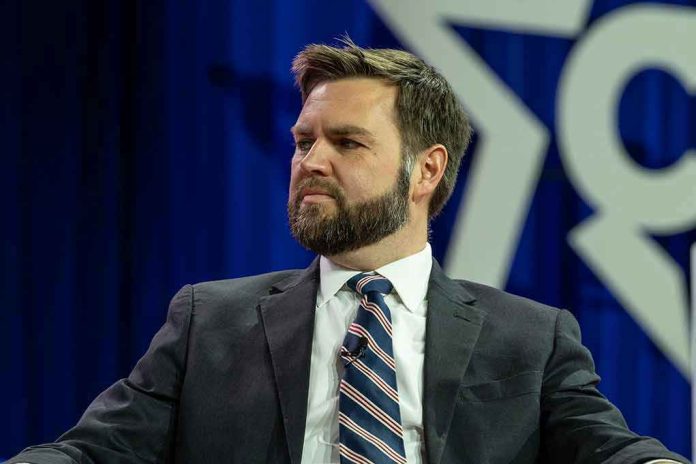
Vice President J.D. Vance has confirmed that President Trump’s administration will not deploy U.S. troops to Israel or Gaza, following a groundbreaking peace deal with Hamas.
Story Snapshot
- The Trump administration secures a historic peace deal between Israel and Hamas.
- VP J.D. Vance confirms no U.S. troops will be deployed to the region.
- This decision aligns with Trump’s America First policy, focusing on domestic priorities.
Peace Deal Details and Implications
The peace agreement, brokered under President Trump’s leadership, marks a significant diplomatic achievement in the Middle East. The deal aims to stabilize the region by establishing ceasefire terms and mutual cooperation between Israel and Hamas. This development is seen as a victory for Trump’s foreign policy, which has consistently emphasized negotiation over military intervention.
Vice President J.D. Vance publicly announced that there are no plans to send U.S. troops to the region, reinforcing the administration’s commitment to avoiding entanglements in foreign conflicts. This decision is consistent with Trump’s America First policy, which prioritizes American interests and resources at home.
America First: A Shift in Foreign Policy
The Trump administration’s approach to foreign policy marks a departure from previous administrations that often involved the U.S. in prolonged overseas military engagements. By focusing on diplomatic solutions, the current administration aims to redirect resources toward strengthening the U.S. economy and infrastructure.
This strategy resonates with many conservatives who have long advocated for limited government intervention abroad. The decision not to deploy troops underscores a commitment to protect American lives and taxpayer dollars.
The Broader Impact on Conservative Values
The refusal to engage militarily in Gaza and Israel not only aligns with conservative values of limited government but also supports a broader agenda of upholding Second Amendment rights and reducing federal overreach. By focusing on negotiation rather than military force, the administration demonstrates a commitment to peace and stability without compromising national sovereignty.
As the situation in the Middle East stabilizes, the Trump administration’s foreign policy approach may set a precedent for future diplomatic efforts, emphasizing negotiation and strategic alliances over direct military involvement.





